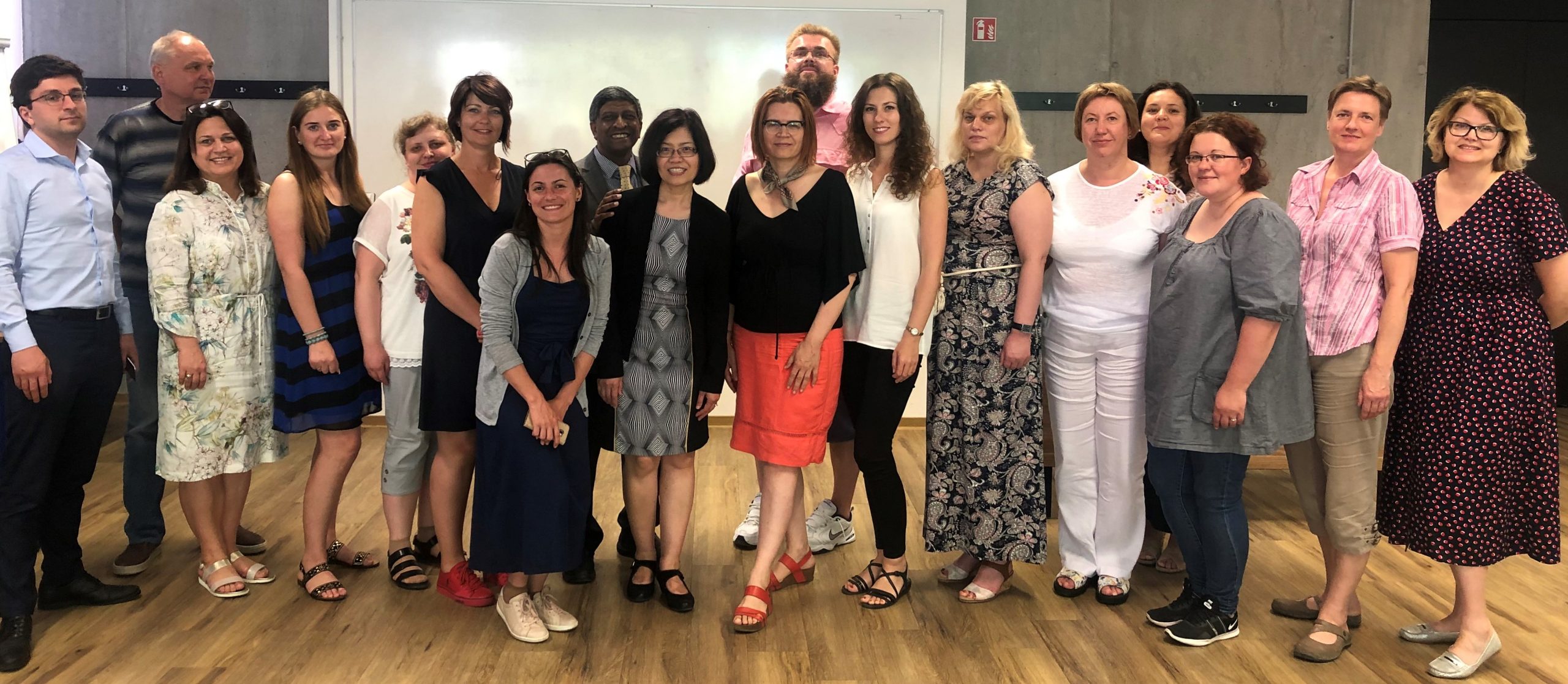
Editor’s note: In this piece, TIRF Trustee and Publications Committee Chair, Dr. Andy Curtis, shares his experience of co-teaching and learning in Lithuania.
My professional activities over the last year have provided a good example of the interconnected world of international education. An invitation to speak at a conference in Honolulu, in January 2018, led to an invitation to a conference in Tokyo, in October 2018. My work in Japan then led to an opportunity to work with educators at a university in Lithuania, in June 2019. And it’s worth noting that I ended up presenting at the conference in Honolulu because I was unable to accept a previous invitation, to present in Dubai, about which I was originally very disappointed. But, as his Holiness the Dalai Lama has written: “Remember that sometimes not getting what you want is a wonderful stroke of luck.”
As a result of those fortuitous connections, long-time TIRF donor, Dr. Liying Cheng, and I were able to spend three very intensive but very rewarding days at Vytautas Magnus University, in Lithuania’s second largest city, Kaunas. Since 1985, the European Union has been showcasing each year a “European Capital of Culture,” and in 2022, Kaunas will be given this title. Through this recognition, the cultural, historical, and linguistic richness of the city will be showcased.
On Day One (June 10th), for three hours in the morning and another three in the afternoon, through simultaneous translation, Liying and I worked with 30 K-12 teachers. These language education professionals came from around the country to develop their knowledge, skills, and competencies in four main areas:
- Assessment Events, in terms of how teachers can know whether instruction is successful and who may need additional support;
- Assessment Tools, in relation to giving the teachers’ students clear ideas about what is important to learn and the criteria or expectations for good work;
- Assessment Processes, which support students with feedback that can help them better understand their requirements, including peer- and self-assessment activities; and
- Assessment Decisions, which result in grades accurately reflecting what the students have learned.
On Day Two and Day Three (June 11th & 12th, again, for six hours each day), we worked with 20 graduate students and professors at Vytautas Magnus University on two main areas: (1) language assessment research, and (2) writing for publication. On Day Two, our main goals were to help the workshop participants deepen their understanding of test quality; impact, washback, and consequences of testing; assessment literacy; and using mixed-methods and multiple methods designs. On Day Three, the focus was on understanding research contexts; identifying research problems and creating research questions; carrying out literature reviews; and analyzing texts of published academic papers.

We are very grateful for this teaching-learning opportunity. We especially want to thank Professor Lina Kaminskiene, Vice Chancellor of the Academy of Education at Vytautas Magnus University; final-year doctoral candidate Vaida Jurgilė, for her administrative support; and first-year doctoral candidate Tetiana Ponomarenko, for being such a wonderful guide. Thanks also go to Giorgi Kobakhidze at the Embassy of Georgia in Vilnius.
The quote above from the Dalai Lama speaks to the serendipity of getting what you need in life when sometimes what we need is unknown to us. Certainly, my trip with Liying to Lithuania was one of these instances in life. Although global mass tourism has made the idea of “hidden gems” now largely defunct, for us, that is what it felt like we had discovered in Kaunas, and we will certainly be returning!

